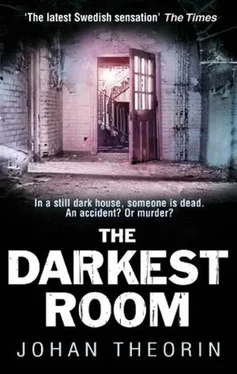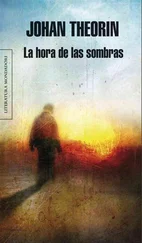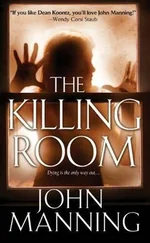She turns around and sees Petter one last time. He is standing alone on a gigantic ice floe beyond a black gulf that is growing all the time.
Then she has to start running again. The thundering roar as the ice breaks up echoes along the coastline.
Ebba runs and runs with the increasing wind at her back, and now finally she can see the manor between the lighthouses-her home. But the big estate is just a little dark red clump on the land; she is still far out on the ice. She prays to God, for Petter and for herself, and prays to Him to forgive them for going so far out.
She leaps across a fresh crack, slips, but carries on running.
Eventually she reaches the ramparts of ice at the edge of the sea. She gets down on all fours and scrambles over them, sniveling and sobbing. She’s safe now.
Ebba gets up and looks back. The horizon has disappeared behind a veil of fog.
The ice floes have gone too. They have drifted east, off toward Finland and Russia.
Ebba carries on up the shore, sobbing. She knows she must hurry back to the house now and get the lighthouse keepers to put out to sea in their boats. But where are they to look for Petter?
The last of her strength gives out, and she falls to her knees in the snow.
Up on the hill the house at Eel Point looks down on her. The roof of the manor house is white with snow, but the windows are as black as coal.
As black as holes in the ice, or as black as angry eyes. Ebba imagines that God has eyes like that.
One day at a time.
They never talked about it, but Livia and Gabriel seemed to be under the impression that their mother had simply gone away, and would be back. It wasn’t good, but at the same time Joakim had almost begun to believe it himself.
Katrine had gone away on holiday, but perhaps she would come back to the manor house.
The day after the police officers’ visit to Eel Point, he was standing in the kitchen looking out of the window. There were no birds heading south over the house on this November day, just a few stray gulls circling over the sea.
He had driven the children into Marnäs a couple of hours earlier and had planned to do some food shopping afterward. He had gone into the store on the square, but had just stood there.
So many things for sale, so many advertisements.
A poster over by the meat counter seemed to be offering lean bone fever, only 39:50 a pound.
Lean bone fever? He must have misread it, but he was suddenly afraid to go closer and find out what it really said. He backed slowly out of the store.
Joakim couldn’t cope with shopping for food.
He had driven back home. He had walked into the vast silence and taken off his outdoor clothes. Then he had gone over to stand by the window. He had no other plans, just to stand here as long as possible.
In front of him on the pale wood of the kitchen counter lay a forgotten lettuce on a dish. Had he bought it, or Katrine? He couldn’t remember, but over the past few days it had begun to turn black inside its plastic bag. Putrefaction in the kitchen wasn’t a good sign; he ought to throw it away.
He hadn’t the energy.
He took a last glance out of the kitchen window, toward all the grayness that was empty water and an overcast sky off Eel Point, and came up with a new plan: he would go and lie down, and never leave his bed again.
Joakim went into the bedroom and lay down full length on the double bed. He stared up at the ceiling. Katrine had taken down the ugly sheets of plasterboard that had been nailed up there, and had re-created the original white ceiling that had been there before, perhaps since the nineteenth century.
The ceiling looked good, it was like lying beneath a white cloud.
Suddenly he heard a tentative knocking through the silence. Hard knuckles against rattling glass.
Joakim turned his head.
Bad news? He was always ready for more bad news.
The knocking came again, more energetic this time.
It was coming from the kitchen door.
Slowly he got up from the bed, went through the kitchen and out into the hallway.
Through the glass he could see two people dressed in dark clothes standing on the steps outside.
It was a woman and a man of Joakim and Katrine’s age. The man was wearing a suit, the woman a dark blue coat and skirt. Both smiled pleasantly at him as he opened the door.
“Hi,” said the woman. “We’re Filip and Miriam. May we come in?”
He nodded and opened the door wide. Were they from the funeral director’s office in Marnäs? He didn’t recognize them, but several people from the office had been in touch over the past few weeks. They’d all been very nice.
“Oh, this is lovely,” said the woman as they walked into the kitchen.
The man looked around, nodded and turned to Joakim. “We’re traveling around the island this month,” he said, “and we noticed someone was home.”
“We live here all year round… my wife and I and our two children,” said Joakim. “Would you like some coffee?”
“Thank you, but we don’t use caffeine,” said Filip, sitting down at the kitchen table.
“What’s your name?” said Miriam. “If you don’t mind my asking.”
“Joakim.”
“Joakim, we would really like to give you something. Something important.”
Miriam took something out of her bag and placed it on the table in front of Joakim. It was a brochure.
“Look at that. Isn’t it beautiful?”
Joakim looked at the slim brochure. On the cover was a drawing of a green meadow beneath a blue sky. In the meadow sat a man and a woman in white clothes. The man had his arm around a lamb that had lain down on the grass, and the woman had her arm around a big lion. They were smiling at each other.
“Isn’t that paradise?” said Miriam.
Joakim looked up at her. “I thought this place was paradise,” he said. “Not now, but before.”
Miriam looked at him in confusion for a few seconds. Then she began to smile again.
“Jesus died for us,” said Miriam. “He died so that things could be as wonderful as this for us.”
Joakim looked at the drawing again and nodded. “Wonderful.” He pointed at the huge mountains in the background. “Fantastic mountains.”
“It’s the kingdom of heaven,” said Miriam.
“We go on living after death, Joakim,” said Filip, leaning across the table as if he were revealing a great secret. “Eternal life… isn’t that fantastic?”
Joakim nodded. He couldn’t stop looking at the drawing. He had seen brochures like this before, but had never realized how beautiful the pictures of paradise were.
“I’d really like to live in those mountains,” he said.
Fresh mountain air. He could have lived there with Katrine. But the island they had moved to was completely flat; there were no mountains. And no Katrine…
Joakim suddenly found it difficult to breathe. He leaned forward, feeling thick tears welling up in his throat.
“Don’t you feel… don’t you feel well?” said Miriam.
He shook his head, leaned over the table, and began to cry. No, he didn’t feel well. He wasn’t well, he was suffering from lean bone fever.
Oh, Katrine… and Ethel…
He wept and sniveled uncontrollably for several minutes at the kitchen table, shut off from the outside world. Somewhere in the distance he could hear whispering voices and the gentle scraping of chairs, but he couldn’t stop weeping. He felt a warm hand on his shoulder, which remained there for a few seconds before it was removed. Then the outside door closed gently.
When he finally blinked away the tears, he was alone. He heard the sound of a car starting up outside.
The brochure with the people and the animals in the meadow was still on the table. When the sound of the engine had died away, Joakim sniveled in the silence and looked at the drawing.
Читать дальше










